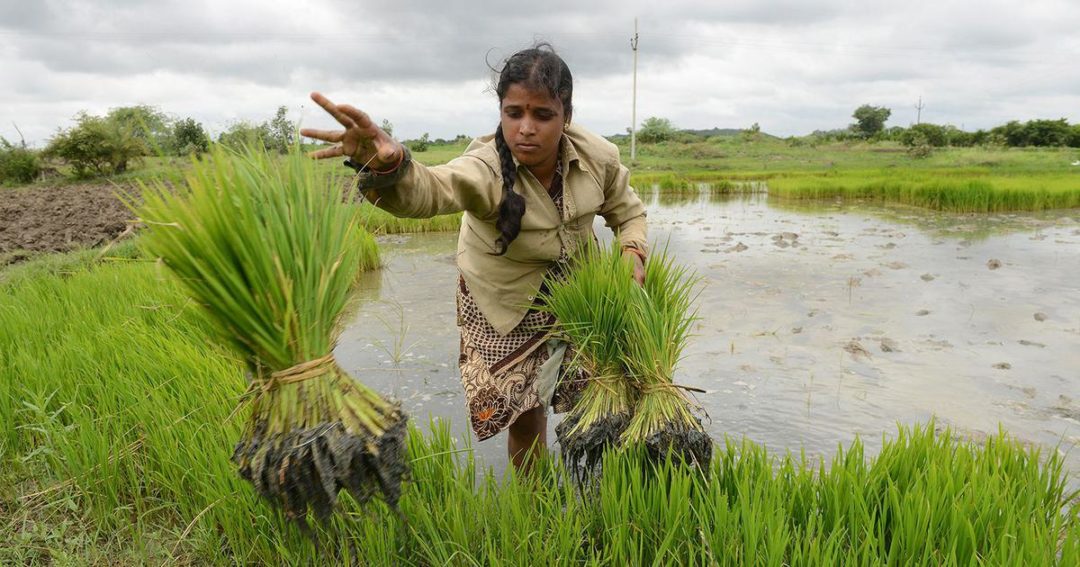Indian prime minister Narendra Modi wants zero budget natural farming to become a mass movement in the country.
Zero budget natural farming promotes chemical-free agriculture practices and low-cost inputs, according to a report from Scroll.in. This farming method also generally involves no or reduced soil disturbance as well. Agriculturist Subhash Palekar introduced the idea in the mid-1990s as an alternative to Green Revolution methods like high-yield variety seeds and chemical fertilizers and pesticides.
Palekar has argued that the high costs of pesticides and fertilizers were the leading cause of debt and suicide among Indian farmers. Farmer suicide accounts for more than 11% of suicide deaths in India, a disturbing trend that’s been ongoing since the 1970s. If farmers could return to traditional farming methods, production costs and credit interest rates would go down, Palekar says. Then farmers wouldn’t have to rely on loans and could get out of the debt cycle.
Zero budget natural farming uses cow manure, aged cow urine, jaggery (a traditional cane sugar common in India and Southeast Asia), pulse flour and other plant-based extracts as inputs. Palekar recommends that farmers make a fermented microbial culture using those inputs, water and a handful of soil from a bund, which is similar to a narrow terrace. About 53 gallons of the mixture would be sprayed on each acre of the farm twice a month. Zero budget natural farming also promotes soil aeration and mulching.
Modi pushed for adoption of the method during two speeches in December. Other members of his government and government agencies have also been encouraging farmers to start zero budget natural farming in recent years. In 2019, Finance Minister Nirmala Sitharaman said the approach could double farmers’ income by 2022. The Indian government has also promoted and funded organic farming and traditional indigenous practices for small and marginal farmers over the past several years.
However, zero budget natural farming has encountered some opposition from the agriculture community. The National Academy of Agricultural Sciences, a think-tank of agriculture scientists in India, called zero budget natural farming an “unproven technology” because of insufficient data and said the government shouldn’t rush into promoting it. The Indian Council of Agriculture Research is currently studying zero budget farming practices in a basmati rice-wheat system, evaluating productivity, economics, soil organic carbon, soil fertility and other soil-health indicators.
Farmers recently ended a year-long protest over controversial agricultural reforms that would loosen rules around the sale, pricing and storage of farm produce. Modi announced on Nov. 19 that his government would repeal the laws, after months of insisting they were good for farmers. Ministers also agreed to discuss farmers’ other demands, including guaranteed prices for produce and a withdrawal of criminal cases against protesting farmers, and provide compensation to the families of dozens of farmers who died during the protests due to heat, cold and COVID-19.
Related Content
No-Till Revolution Plays Out on 1-Acre India Farm: No-tilling in the U.S. often involves thousands of acres and a lot of complex decisions about seed, equipment and inputs. But for Raju Titus, simplicity is what made his farm profitable.
No-Till Could Help Improve India’s Air Quality: A no-tiller in northern India argues that while farmers receive too much blame for air pollution, they can still contribute to the solution.
Genomics Research Helps Develop High-Yielding, Drought-Tolerant Chickpeas: While India grows about 12 million tons of chickpeas each year, the national yield of the crop has not increased much over time. However, the need for more chickpeas to feed the increasing population continues to grow.
The No-Till Passport series is brought to you by Martin Industries.
Since 1991, Martin Industries has designed, manufactured and sold leading agriculture equipment across the U.S. and Canada. Known for Martin-Till planter attachments, the company has expanded to include a five-step planting system, closing wheel systems, twisted drag chains, fertilizer openers and more in their lineup. Their durable and reliable planter attachments are making it possible for more and more farmers to plant into higher levels of residue.








